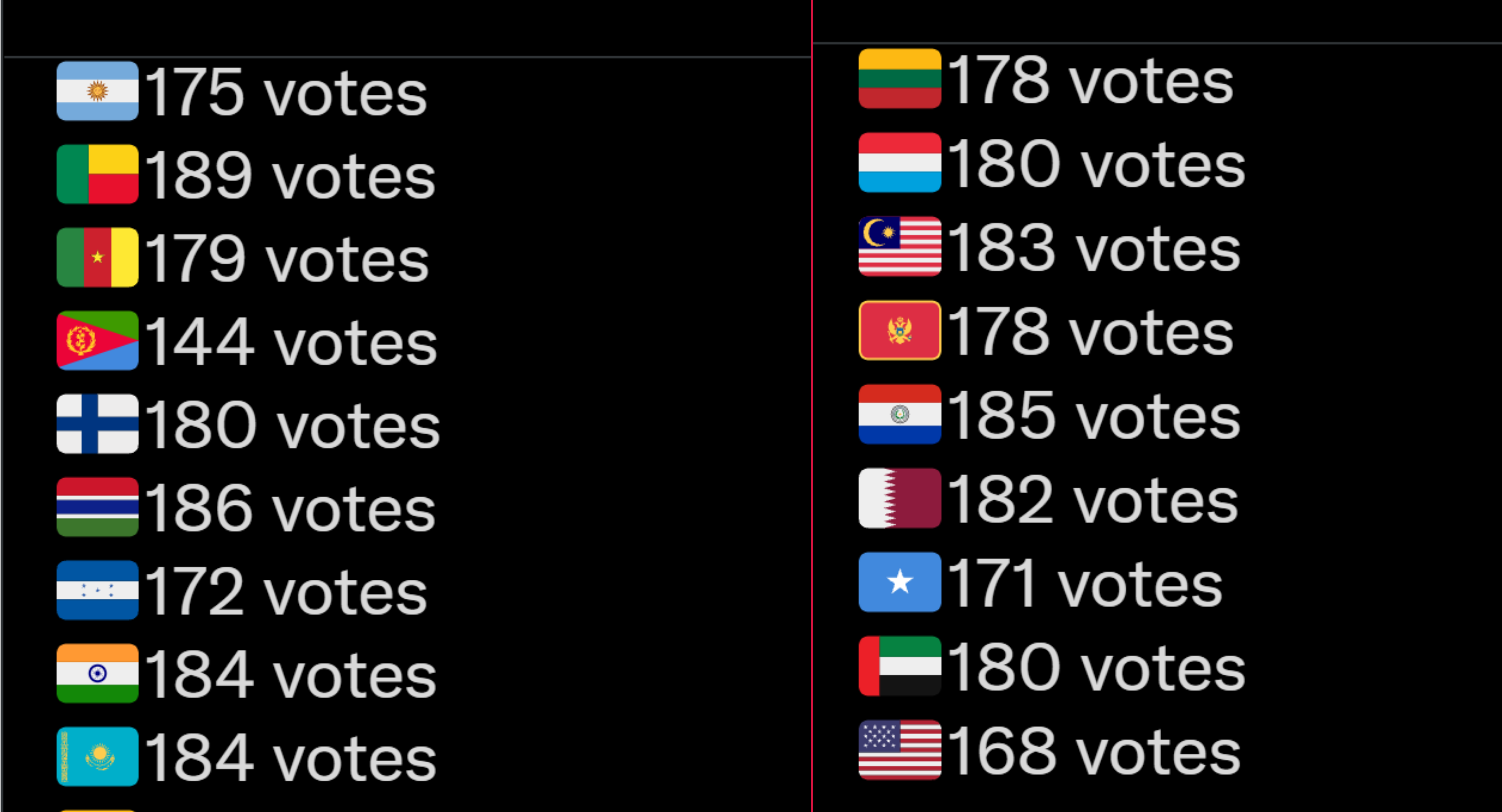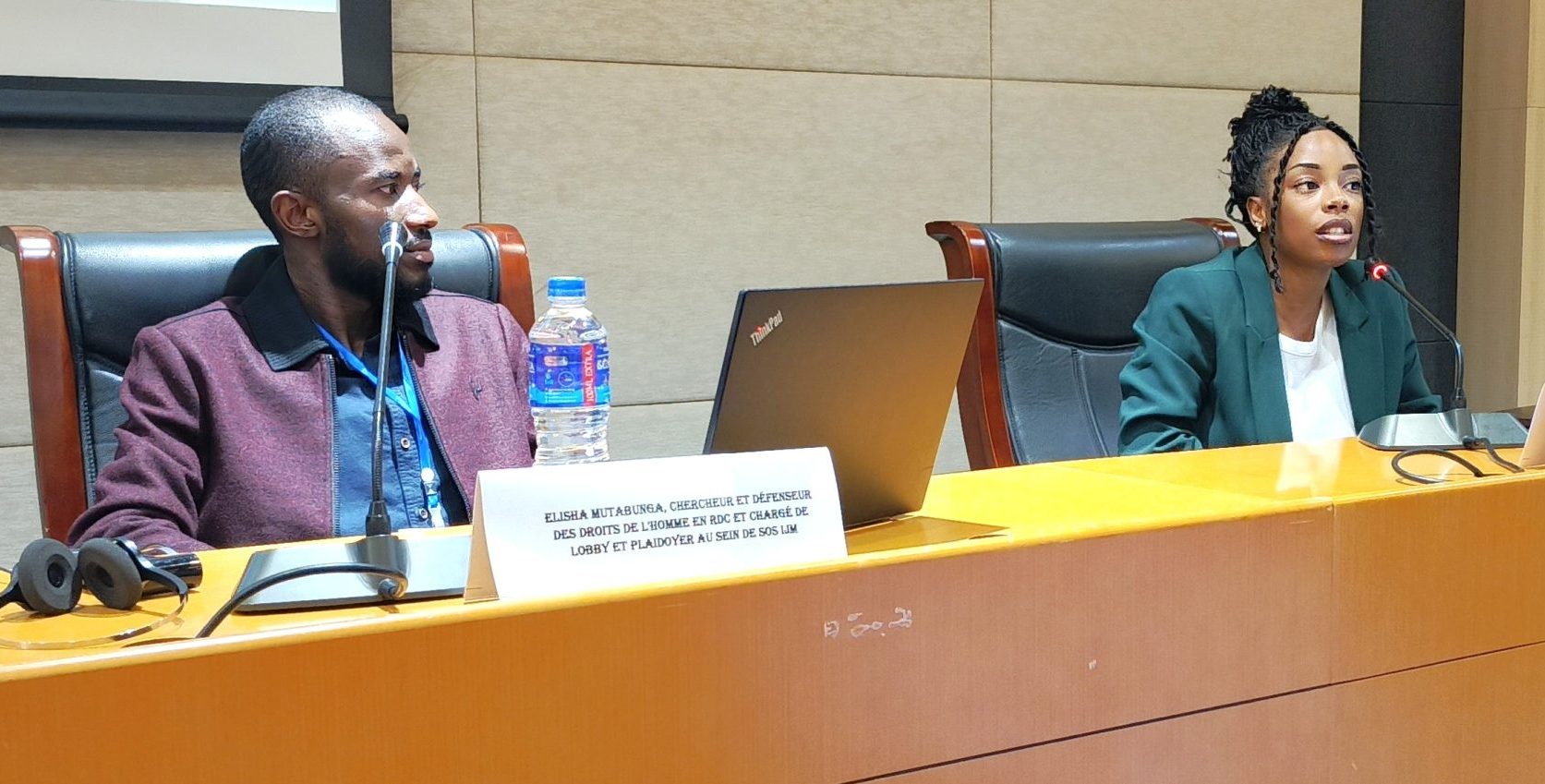Not only were all candidates elected to the Council, but each candidate received between 144 and 189 votes, despite a number of candidates having poor records when it comes to human rights and cooperation with the UN.
For the Council to be effective and relevant, it needs members committed to the promotion and protection of human rights, both at home and abroad. Competitive elections are critical to achieving this.
ISHR deeply regrets the closed, uncompetitive slates across all regions this year. This significantly undermines the credibility of the election, and is inconsistent with the spirit of the membership criteria elaborated in GA resolution 60/251 that set up the Council.
‘Ironically, the UN just recently published a handbook on ‘Human Rights and Elections’ and among other things, it says “Genuine elections also offer an actual choice to the electorate.” And yet, today, we saw 18 countries running for 18 seats. Competitive elections are a prerequisite to enabling electing States to apply the membership criteria when casting their ballots’, said ISHR’s Salma El Hosseiny.
‘The closed slates presented today, along with the close vote count, brings into question whether States are willing to commit to being genuinely guided by human rights considerations in Council elections’, said ISHR’s Tess McEvoy.
Despite all regional groups running closed slates, candidates must still secure a majority to obtain a seat at the Council. Theoretically, a candidate could have failed to obtain the votes necessary to be elected (97) – which would have sent a clear message. Instead, we had nearly every country in the world casting ballots in favour of States that manifestly fail to meet the membership criteria, like Cameroon, the UAE and Eritrea. In this regard, candidates’ human rights records and cooperation with the Council and its mechanisms are highlighted in ISHR’s Scorecards.
Critically, only 10 candidates participated in the annual pledging event for candidate States organised by ISHR and Amnesty International last month. The lack of participation by the now eight members of the Council (Benin, Cameroon, Eritrea, The Gambia, and Somalia from the Africa Group; and Kazakhstan, India and the United Arab Emirates from the Asia and the Pacific Group) suggests a lack of commitment to transparency, dialogue and accountability.
Furthermore, it is incredibly concerning that, of the 18 candidates, more than half (10) have been cited by the Secretary-General in the last 11 years for engaging in acts of intimidation or reprisals in retaliation for, or to discourage cooperation with, the UN. It is deeply disturbing that, in the last 12 months alone, Cameroon, India and the UAE have engaged in acts of reprisals and intimidation against individuals or groups providing vital testimony, evidence and information to the UN on human rights. ‘Today’s vote count indicates that few States voted with integrity, despite continued calls from civil society’, added McEvoy.
‘More positively, the fact that States with significant records of human rights violations and poor cooperation with UN mechanisms – including Cameroon, Eritrea and UAE – received the lowest number of votes in their respective regions unequivocally demonstrates the need for competitive elections and that competitive elections produce better outcomes ,’ added El Hosseiny.
Today’s results underline the importance of ensuring that scrutiny of Council members does not end when the election is over. Once States are elected, the spotlight should be intensified, not lifted. ‘To reflect that membership comes with responsibilities, we see value in deeper scrutiny of Council members throughout their terms, as envisaged in resolution 60/251. The Council itself could also be more responsive where members blatantly fail to fulfil membership obligations – for example by considering making recommendations to the GA on suspension where appropriate,’ added El Hosseiny.
ISHR calls on all regional groups going forward to ensure, as a matter of principle, competitive slates; to encourage more States to present their candidacy; for all candidates to announce their candidacies with sufficient time for voting States and civil society to properly consider their candidacies; and in voting, for all States to commit to making human rights paramount in Council elections, rather than political considerations.
The results of the elections to the Human Rights Council, with newly elected members in bold, are as follows:
- African Group: Benin (189 votes), Gambia (186 votes), Cameroon (179 votes), Somalia (171 votes), Eritrea (144 votes)
- Asia Pacific Group: India (184 votes), Kazakhstan (184 votes), Malaysia (183 votes), Qatar (182 votes), UAE (180 votes), Fiji (1 vote), Maldives (1 vote)
- Eastern Europe Group: Lithuania (178 votes), Montenegro (178 votes), Estonia ( 1 vote), Slovakia (1 vote)
- Latin America and Caribbean Group: Paraguay (185 votes), Argentina (175 votes), Honduras (172), Chile (1 vote), Costa Rica (1 vote), Dominica (1 vote), Ecuador (1 vote)
- Western Europe and Others Group: Finland (180 votes), Luxembourg (180 votes), USA (168 votes), Canada (1 vote), Israel (1 vote), Italy (1 vote)




